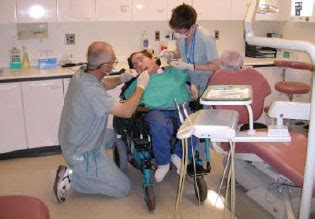12+ Essential Pre Op Checklist For Patients

Preparing for surgery can be a daunting task, but having a comprehensive pre-op checklist can help alleviate some of the stress and uncertainty that comes with it. As a patient, it’s essential to be proactive and informed about the preparation process to ensure a smooth and successful surgical experience. In this article, we’ll outline the 12+ essential pre-op checklist items that patients should consider before undergoing surgery.
I. Medical History and Current Health Status (Weeks Before Surgery)
Before surgery, it’s crucial to provide your medical team with an accurate and detailed account of your medical history. This includes:
- A list of current medications, including dosages and frequencies
- A history of previous surgeries, illnesses, and medical conditions
- Any allergies or sensitivities to medications, foods, or environmental factors
- Current health status, including any ongoing medical conditions or concerns
II. Pre-Operative Tests and Exams (1-2 Weeks Before Surgery)
Your doctor may order various tests and exams to assess your overall health and identify any potential risks or complications. These may include:
- Blood work, such as complete blood counts (CBC) and blood chemistry tests
- Imaging studies, like X-rays, CT scans, or MRI scans
- Electrocardiograms (ECG) or other heart-related tests
- Lung function tests, such as spirometry or pulmonary function tests
III. Medication Management (1-2 Weeks Before Surgery)
Certain medications can increase the risk of bleeding, interact with anesthesia, or affect the surgical outcome. Your doctor may advise you to:
- Stop taking certain medications, such as blood thinners or anti-inflammatory drugs
- Adjust the dosage or frequency of other medications
- Start taking new medications to prepare for surgery
IV. Lifestyle Changes (1-2 Weeks Before Surgery)
Making lifestyle changes can help optimize your health and reduce the risk of complications. Consider:
- Quitting smoking or reducing nicotine intake
- Limiting alcohol consumption or avoiding it altogether
- Increasing physical activity or starting a gentle exercise routine
- Eating a balanced diet rich in fruits, vegetables, and whole grains
V. Pre-Operative Instructions (1-3 Days Before Surgery)
Your doctor will provide specific instructions to follow in the days leading up to surgery. These may include:
- Fasting or avoiding certain foods and drinks
- Avoiding strenuous activities or heavy lifting
- Getting plenty of rest and avoiding fatigue
- Arranging for transportation to and from the hospital
VI. Informed Consent and Questions (1-3 Days Before Surgery)
It’s essential to understand the surgical procedure, risks, and benefits. Take this opportunity to:
- Review and sign the informed consent form
- Ask questions or express concerns about the surgery
- Discuss any fears or anxieties with your medical team
VII. Insurance and Financial Arrangements (1-2 Weeks Before Surgery)
Verify your insurance coverage and make necessary financial arrangements. This includes:
- Confirming your insurance provider and policy details
- Understanding any out-of-pocket costs or expenses
- Making arrangements for payment or financing options
VIII. Support System and Post-Operative Care (1-2 Weeks Before Surgery)
Having a support system in place can make a significant difference in your recovery. Consider:
- Arranging for a friend or family member to accompany you to the hospital
- Having a support person to help with post-operative care and errands
- Preparing your home for recovery, including setting up a comfortable rest area
IX. Personal and Hygiene Items (1-2 Days Before Surgery)
Pack essential personal and hygiene items to bring to the hospital. These may include:
- Toiletries, such as toothbrush, toothpaste, and hairbrush
- Comfortable clothing and undergarments
- Phone and charger
- Insurance cards and identification
X. Transportation and Accommodations (1-2 Days Before Surgery)
Arrange for safe transportation to and from the hospital. Consider:
- Booking a taxi or ride-sharing service
- Having a friend or family member drive you
- Arranging for accommodations, such as a hotel room, if necessary
XI. Electronic Devices and Entertainment (1-2 Days Before Surgery)
Bring electronic devices and entertainment to help pass the time during your hospital stay. These may include:
- Phone, tablet, or laptop
- Books, magazines, or e-readers
- Music or podcasts
- Portable charger
XII. Post-Operative Recovery and Follow-Up (After Surgery)
After surgery, it’s essential to follow your doctor’s instructions for a smooth recovery. This includes:
- Following medication schedules and dosage instructions
- Attending follow-up appointments and check-ups
- Monitoring for signs of complications or infection
- Gradually returning to normal activities and exercises
XIII. Additional Tips and Reminders
- Stay hydrated and drink plenty of water
- Avoid heavy lifting, bending, or strenuous activities
- Keep your follow-up appointments and check-ups
- Don’t hesitate to reach out to your medical team if you have questions or concerns
By following this comprehensive pre-op checklist, patients can ensure they are well-prepared for surgery and set themselves up for a successful recovery.
What should I do if I have a question or concern before surgery?
+Don't hesitate to reach out to your medical team if you have questions or concerns. They are there to help and want to ensure you feel informed and prepared for surgery.
How can I prepare my home for recovery?
+Prepare your home by setting up a comfortable rest area, stocking up on essentials like food and toiletries, and arranging for help with errands and chores.
What should I bring to the hospital?
+Bring essential personal and hygiene items, such as toiletries, comfortable clothing, and insurance cards. You may also want to bring electronic devices and entertainment to help pass the time.
In conclusion, preparing for surgery requires attention to detail and a proactive approach. By following this comprehensive pre-op checklist, patients can ensure they are well-prepared for surgery and set themselves up for a successful recovery. Remember to stay informed, ask questions, and prioritize your health and well-being throughout the process.



